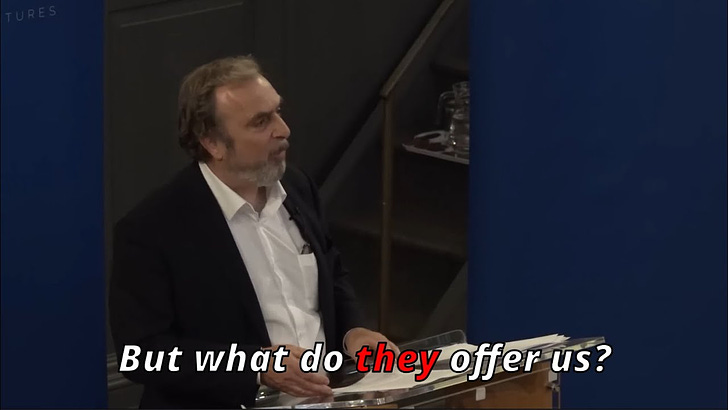Peter Hitchens’ prognostications over the years have been depressingly accurate. He was among the first to implore conservatives to abandon the Conservative Party, rightly observing that it began as an outfit for getting the sons of gentlemen into political office and was utterly bereft of any principles.
His calls, however, went unheeded. The Blair-heirs of Cameron, May, Boris and Sunak continue to implement the revolutionary principles introduced in 1997, with the Gramsciite march through the institutions accelerating ever more speedily.
Today, the Conservative Party is, in his words, 'a device for seeking out men and women without any trace of conservative desires or tastes, making them into MPs and ordering them to shout at Sir Keir Starmer every Wednesday at noon.'
This line is taken from Hitchens’ recent talk at the Roger Scruton Memorial Lectures - a blackpill that all should take. Entitled 'After Conservatism' (or, in the original title, 'What's left now that conservatism is dead and gone?'), he presents an undeniably accurate assessment of where we stand today.
Appearances can be deceiving. Many of our great institutions have spruced up their their façade: parts of have London in recent years been greatly tarted up. Yet, we have a 'treasury with no treasure' and an 'admiralty with hardly any ships'. The city, once authentic in its life and vibrancy, has become the playground of the ultra-rich: a gleaming metropolis administrating a constantly withering hinterland and overseeing the atrophying of the national soul.
Across the nation, things may look the same, but the soul has necrotised. For many who profess conservatism, their comfort discourages them from seeing the rot that has spread throughout each beam and joist.
A revolution took place in front of our eyes when Anthony Blair took power and nobody had the courage to stand against it; accusations of isms and the abandonment of conservative principle ensured its unopposed triumph. In truth, there has been no conservative party in this country for many decades, with Thatcher's free-market thought in little sense of the word 'conservative'.
Debates no longer take on civilisation-altering matters. Our nation's demographic revolution underway continues unabated, and the Uniparty's policies stand unopposed. Instead of being unified by our national institutions and our history, parasitical false idols occupy the minds of those in power: genderism, environmentalism, lust for foreign war.
His emotional peroration is worth quoting at length:
“... adversarial debate has been strangled and has been strangled largely because of a useless political party believing in nothing but office and money thought it beneath it to fight.
To fight for what? Fight for the Christian religion. To fight for the freedoms won over centuries of struggle and preserved by repeated battle on land and sea and in the air.
It's a fight for patriotism, for the honest love of every field and hedgerow. landscape, language, architecture, law and justice. Lifelong marriage, private life, for our unique language, for Shakespeare and the Bible and the prayer book.
For Dickens and Wordsworth, for the great cathedrals and parish churches which express, without words, the truth about us.
For the fact that we are unique and should remain so. For the ashes of our fathers and the temples of our gods.
It was all in our hearts once and it is still in mind but what do they offer us? Box homes and tower blocks and hedge funds. Freeports and tax cuts. Exciting trade deals with the Far East and the tangy flavour of chlorine-washed chicken.”
The grand pessimist's words are depressingly hard to deny. We now exist in the transition point between two worlds. Is it not certain what, in that new world, awaits those of us who believe in those now hopelessly old-fashioned concepts that undergirded our civilisation for centuries. Let us hope that Mr Hitchens’ predictions are uncharacteristically inaccurate this once.



